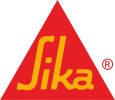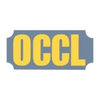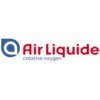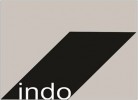Filter interviews by
The Travancore Cochin Chemicals Process Operator Interview Questions and Answers
The Travancore Cochin Chemicals Process Operator Interview Experiences
1 interview found
I applied via Walk-in and was interviewed before Jun 2023. There was 1 interview round.
(2 Questions)
- Q1. What do you know about this company
- Q2. Relationship between TCC and ISRO
- Ans.
TCC and ISRO have a collaborative relationship in the field of space technology and research.
TCC (Thiruvananthapuram City Corporation) has collaborated with ISRO (Indian Space Research Organisation) for various projects.
ISRO's Vikram Sarabhai Space Centre in Thiruvananthapuram works closely with TCC for initiatives like waste management and environmental monitoring.
The partnership between TCC and ISRO showcases the int...
Top trending discussions






Interview questions from similar companies

I appeared for an interview before May 2024, where I was asked the following questions.
- Q1. Technical round about our experience and studies
- Q2. Human resource management
- Q3. Nature of duties in earlier assignments
Interview Preparation Tips

(1 Question)
- Q1. Difference between list and tuple
- Ans.
List is mutable, tuple is immutable in Python.
List can be modified, tuple cannot be modified
List uses square brackets [], tuple uses parentheses ()
List is used for collections of items that may change, tuple is used for fixed collections
Skills evaluated in this interview

Assistant Manager Interview Questions & Answers
Oriental Carbon & Chemicalsposted on 5 Jul 2023

(1 Question)
- Q1. About the purchase field
(1 Question)
- Q1. Technik question about purchase
(1 Question)
- Q1. HR round asked persona question


It was straightforward
(2 Questions)
- Q1. Was easy explaining about role
- Q2. Previous experience. How to handle the role and expectation. Work schedule. Explain about the team
- Ans.
The candidate should discuss their previous experience, how they handle their role and expectations, their work schedule, and provide an explanation about their previous team.
Discuss previous experience in software engineering roles
Explain how you handled your role and met expectations in previous positions
Describe your typical work schedule and any flexibility you have
Provide an overview of your previous team, their s...

I applied via Company Website and was interviewed in Mar 2022. There were 2 interview rounds.

(2 Questions)
- Q1. About kilns pregeater elevator and belt conveyors
- Q2. Slope percentage calculation of kiln Tan value in oil analysys Material and man power handling
- Ans.
The question covers slope percentage calculation of kiln, tan value in oil analysis, and material and manpower handling.
For slope percentage calculation of kiln, we need to measure the height and length of the kiln and use the formula tan(theta) = height/length.
Tan value in oil analysis is used to determine the acidity of the oil. It is calculated by dividing the acid number by the saponification number.
Material and ma...
Interview Preparation Tips
Prepare technically
Follow dress code
Groom well

I applied via Approached by Company and was interviewed in Aug 2024. There were 2 interview rounds.
(2 Questions)
- Q1. How much Experience
- Ans.
I have 10 years of experience in software engineering, specializing in backend development and system architecture.
10 years of experience in software engineering
Specialize in backend development and system architecture
Worked on projects involving scalability and performance optimization
- Q2. Do you have any supervisor license
- Ans.
No, I do not have a supervisor license.
I do not possess a supervisor license at the moment.
I have not pursued obtaining a supervisor license in my career.
My focus has been on technical expertise rather than supervisory roles.
(2 Questions)
- Q1. How to test of motors
- Ans.
Testing of motors involves various methods to ensure functionality and performance.
Performing insulation resistance tests to check for any electrical faults
Conducting load tests to measure the motor's performance under different conditions
Checking for abnormal noise or vibrations during operation
Inspecting the motor for any physical damage or wear
Using thermography to detect overheating issues
- Q2. What is transformer safety relay's
- Ans.
Transformer safety relays are devices used to protect transformers from faults and overloads.
Transformer safety relays monitor the electrical parameters of a transformer, such as current, voltage, and temperature.
They can trip the transformer offline in case of a fault to prevent damage.
Some common types of transformer safety relays include overcurrent relays, differential relays, and temperature relays.

I appeared for an interview in Jul 2023, where I was asked the following questions.
- Q1. Can you relocate?
- Ans.
Yes, I am open to relocating for the right opportunity and to further my career growth.
I have previously relocated for a job, which helped me gain valuable experience.
I understand the importance of being flexible in today's job market.
Relocating can provide new challenges and opportunities for professional development.
I am willing to explore different locations that align with my career goals.
- Q2. Have any relevant experience ?
- Ans.
I have over 8 years of experience in software engineering, specializing in system architecture and project management.
Led a team of 5 engineers in developing a scalable microservices architecture for a financial application.
Implemented CI/CD pipelines that reduced deployment time by 40%.
Worked on a cross-functional team to enhance user experience, resulting in a 30% increase in user satisfaction.
Developed a machine lea...

I appeared for an interview in Jul 2022.

(1 Question)
- Q1. Related to piping , project, maintenance
(1 Question)
- Q1. Current organization, job profile etc
Interview Preparation Tips

Assistant Manager Interview Questions & Answers
Deepak Phenolicsposted on 23 Oct 2023
I applied via Recruitment Consulltant and was interviewed before Oct 2022. There were 3 interview rounds.

(2 Questions)
- Q1. Basic question related to field
- Q2. Previous job experience
(1 Question)
- Q1. Family background
The Travancore Cochin Chemicals Interview FAQs
Tell us how to improve this page.
Overall Interview Experience Rating
based on 1 interview experience
Difficulty level
Duration
Interview Questions from Similar Companies
|
Chemical Process Engineer
7
salaries
| ₹1.7 L/yr - ₹3 L/yr |
|
Graduate Apprenticeship Trainee
6
salaries
| ₹1 L/yr - ₹1.2 L/yr |
|
Plant Operator
6
salaries
| ₹1.2 L/yr - ₹2.2 L/yr |
|
Process Engineer
5
salaries
| ₹2 L/yr - ₹4 L/yr |
|
Engineer Trainee
5
salaries
| ₹1 L/yr - ₹1.8 L/yr |

Air Liquide

Deepak Phenolics

Anupam Rasayan India

Indo Amines
- Home >
- Interviews >
- The Travancore Cochin Chemicals Interview Questions










